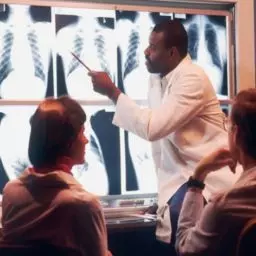Accounting & Finance
Advertising
Aerospace, Aviation, Aeronautical, and Astronautical Engineering
Agriculture Business & Production
Agriculture Science
Airframe & Powerplant
American/United States Studies/Civilization
Animal & Livestock Sciences
Anthropology
Arabic Language & Literature Studies
Architecture Studies
Art History, Criticism and Conservation
Art Teacher
Art, Animation, Design General
Astronomy
Auto/ Transportation Studies
Automotive Mechanics Technician
Aviation
Bio/ Chemical Engineering
Biochemistry
Biology
Biology Teacher
Biotechnology
Business Administration
Business Analytics
Business Operations Support and Assistant Services
Carpentry / Carpenters
Chemistry
Chiropractic / Chiropractor
Civil Engineering
Communications
Computer Engineering
Computer Science
Computer Technician
Conflict & Dispute Resolution
Construction Engineering
Construction/ Labor
Cosmetology, Grooming, Haircare & Styling
Counter Terrorism
Creative Writing
Criminal Justice Policy
Criminal Justice, General
Culinary Arts & Food Services
Culinary Management
Culinary Studies
Cultural & Language Studies
Curriculum and Instruction
Cyber Security & Operations
Dance
Data Analytics
Data Analytics & Data Science
Data Science
Dental Assistant
Dentistry
Early Childhood Education
Earth & Environmental Sciences
Eastern Medicine
Economics
Education Administration
Education/ Teacher Development
Electrical Engineering
Electrician Technology
Electrocardiograph Technology/Technician
Elementary Education
Emergency Medical Technician (EMT Paramedic)
Emergency Services
Energy Systems
Energy Systems Engineering
Engineering General
Engineering Technologies/Technicians
Engineering Technology
English
English as a Second Language/ESL Language Instructor
English/Language Arts Education
Entrepreneurship/Entrepreneurial Studies
Executive Assistant - Certificate
Fashion
Film & Photography
Finance Crime
Fire Science & Fire Services
Funeral Service & Mortuary Science
General Disciplines Teacher Education
General, Multi-/Interdisciplinary Studies
Genetics
Geography
Geology/Earth Science
Graphic Design
Health Data Analysis
Health Science
Healthcare Administration
Heating, Air Conditioning, Ventilation and Refrigeration Maintenance Technology/Technician (HAC, HACR, HVAC, HVACR)
Hemodialysis Technician
History
Homeland Security
Hospitality/ Tourism
Human Behavior Studies
Human Resources
Human Services, General
Humanities/Humanistic Studies
HVACR
Industrial Engineering
Information Sciences
Information Technology
Integrative and Functional Medicine
Interior Design
International Business/Trade
International Relations / Global Studies
IT Management
IT Security
IT Support
Journalism
Junior High/Intermediate/Middle School Education
Lab Sciences
Language Teacher Education
Leadership & Management
Legal Assistant/Paralegal
Legal/ Law Studies
Library Science & Administration
Logistics & Supply Chain Management
Management in Energy
Management Information Systems
Marketing & Retail
Massage Therapy
Mathematics
Mechanical Engineering
Medical Administrative Assistant
Medical Assistant
Medical Coding and Billing
Medical Residency
Medical Transcription Editing
Music & Singing
Music Education
Naturopathic
Neuroscience
Nuclear Engineering
Nursing
Nutrition
Occupational Therapy / Sciences
Optometry
Personal Trainer
Pharmacy
Pharmacy Technician
Philosophy
Physical Education Teaching / Coaching
Physical Sciences (Other)
Physical Therapy/ Exercise Science
Physican Assistant
Physics
Physiology
Police/Corrections/ Criminal Studies
Political Science
Procurement & Acquisition
Project Management
Psychology Studies
Public Administration
Public Health
Public Relations
Public Sector Management
Reading Teacher
Real Estate
Religious Studies
ROTC
School Counseling and Guidance
Science Teacher
Secondary Education
Security & Military Science
Skin/ Make-Up/ Nail Specialist
Social Sciences
Social Studies Teacher
Social Work
Sociology
Spanish
Special Education
Sports and Fitness Administration
Statistics & Business Analytics
Surgery Residency/Fellowship Programs
Theatre
Trade/ Technicians
Vehicle/ Engine Technology/ Repair
Veterinary Assistant
Veterinary Science & Animal Care
Welding
Womens Studies


















